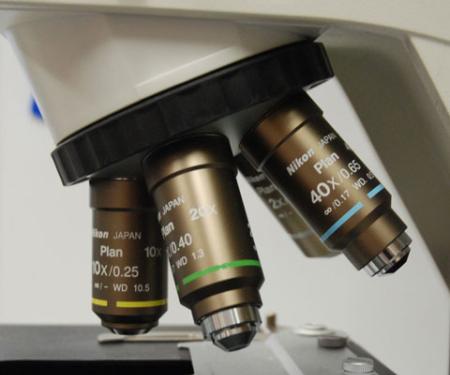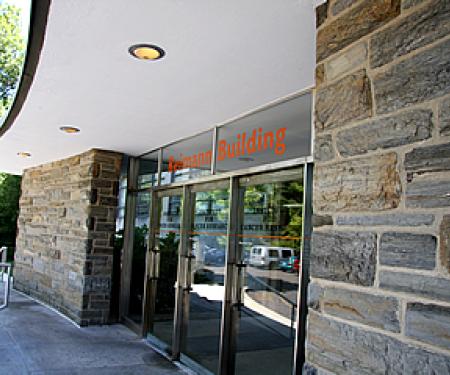This Fox Chase professor participates in the Undergraduate Summer Research Fellowship.
Learn more about Research Volunteering.
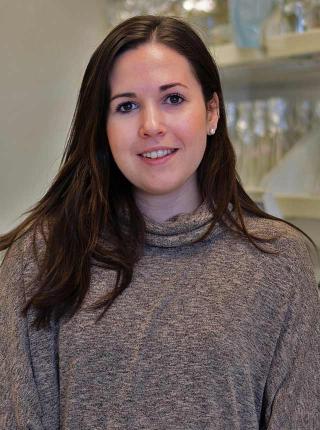

This Fox Chase professor participates in the Undergraduate Summer Research Fellowship.
Learn more about Research Volunteering.
Assistant Professor

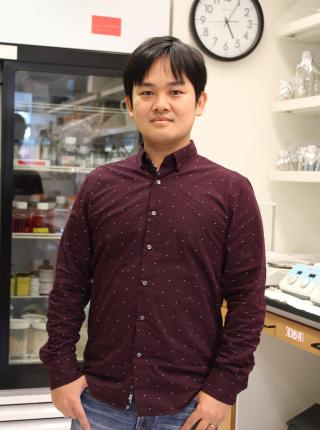
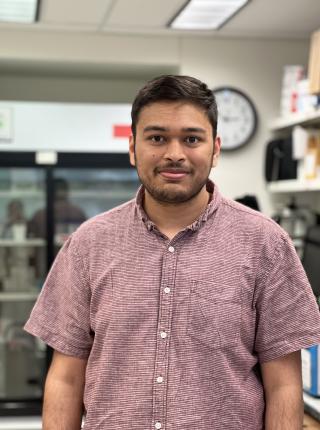
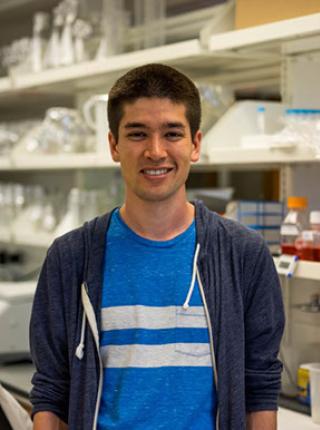
We are just starting to grasp the complexity of human cancer. Different tumor types tend to harbor mutations in different genes but how tissue specific selective damaging and aging processes result in specific combinations of mutated genes and how these processes are influenced by cell diversity and functionality remain poorly explored. Our research program will focus on understanding how tissue and organ degeneration, regeneration defects, and decline in regenerative capacity affect the initiation of cancer. We will use the liver as the target organ as it has several important characteristics that will facilitate tackling the above barriers. The liver has high endogenous regenerative capacity after damage resulting from trauma, toxicity or infection. Development of liver cancer is tightly linked to chronic liver damage and regenerative responses. Additionally, the liver is very amenable to experimental manipulation, not only by genetic tools but also by using viruses or even naked DNA.
We are just starting to grasp the complexity of human cancer. Different tumor types tend to harbor mutations in different genes but how tissue specific selective damaging and aging processes result in specific combinations of mutated genes and how these processes are influenced by cell diversity and functionality remain poorly explored. Our research program will focus on understanding how tissue and organ degeneration, regeneration defects, and decline in regenerative capacity affect the initiation of cancer. We will use the liver as the target organ as it has several important characteristics that will facilitate tackling the above barriers. The liver has high endogenous regenerative capacity after damage resulting from trauma, toxicity or infection. Development of liver cancer is tightly linked to chronic liver damage and regenerative responses. Additionally, the liver is very amenable to experimental manipulation, not only by genetic tools but also by using viruses or even naked DNA.
One of our projects is investigating how the different oncogenic events interact during hepatocellular carcinoma (HCC) initiation. To date, mouse models of HCC do not accurately replicate the molecular development of human liver cancer, a problem that presents an obstacle to fully understand the complex mechanisms of human HCC and poses a limit to the development of novel therapeutic approaches. We are combining mouse genetics with the use of transposons to better replicate the initiation of HCC as it develops in humans, as well as the interactions between different oncogenic mutations.
We are also interested in cholangiocarcinoma (CCA), another form of liver cancer. CCA can be anatomically divided into three different subtypes: distal, perihilar, and intrahepatic. Distal and perihilar originate from the common bile duct, whereas intrahepatic originates from the intrahepatic bile duct cells. While these anatomical differences are understood, our lab is interested in the molecular features of each type of CCA, which have yet to be fully elucidated. We have developed an in vitro model using organoids derived from intrahepatic and common bile duct cells from mice harboring human CCA oncogenic mutations.
Another of our projects involves applying liver regeneration from mouse models to humans. Our recent identification of hybrid periportal hepatocytes (HybHP) have shown an important role in the regeneration of the damaged liver in mouse. These findings form the basis of our next goal, which is to translate these results from our mouse models into human cell therapy. To achieve this, we are applying single cell sequencing to human liver in order to characterize human hybrid hepatocytes.
Recently, we have also demonstrated for the first time that patient MHC-I genotypes directly influence the probability that their tumor will acquire a specific recurrent oncogenic mutation. This provided new evidence that immunoediting of oncogenic mutations occurs in humans. Our lab is now interested in understanding the links between HLA genotype and cancer susceptibility as a way to implement preventive strategies from MHC-I allele genotypes.
Font-Burgada J#, Shalapour S, Ramaswamy S, Hsueh B, Rossell D, Umemura A, Taniguchi K, Nakagawa H, Valasek MA, Ye L, Kopp JL, Sander M, Carter H, Deisseroth K, Verma IM, Karin M#. “Hybrid Periportal Hepatocytes Regenerate the Injured Liver without Giving Rise to Cancer”.
Cell. 2015. Aug 13;162(4):766-79. doi: 10.1016/j.cell.2015.07.026. PMID: 26276631. (# co-corresponding authors). Highlighted in Cell Stem Cell (2015 Oct 1;17(4):377-8) and Nature Reviews Gastroenterology and Hepatology (2015 Oct;12(10):549) PubMed
Shalapour S, Font-Burgada J, Di Caro G, Zhong Z, Sanchez-Lopez E, Dhar D, Willimsky G, Ammirante M, Strasner A, Hansel DE, Jamieson C, Kane CJ, Klatte T, Birner P, Kenner L, Karin M. “Immunosuppressive plasma cells impede T-cell-dependent immunogenic chemotherapy”.
Nature. 2015 May 7;521(7550):94-8. doi: 10.1038/nature14395. PMID: 25924065. PubMed
Wree A, Johnson CD, Font-Burgada J, Eguchi A, Povero D, Karin M, Feldstein AE. “Hepatocyte-specific Bid depletion reduces tumor development by suppressing inflammation-related compensatory proliferation”.
Cell Death Differ. 2015 Dec;22(12):1985-94. doi: 10.1038/cdd.2015.46. PMID: 25909884. PubMed
Kessler R, Tisserand J, Font-Burgada J, Reina O, Coch L, Attolini CS, Garcia-Bassets I, Azorín F. “dDsk2 regulates H2Bub1 and RNA polymerase II pausing at dHP1c complex target genes”.
Nat Commun. 2015 Apr 28;6:7049. doi: 10.1038/ncomms8049.PMID: 25916810. PubMed
Wu X, Zhang W, Font-Burgada J, Palmer T, Hamil AS, Biswas SK, Poidinger M, Borcherding N, Xie Q, Ellies LG, Lytle N, Wu LW, Yang J, Dowdy SF, Reya T, Karin M. “Ubc13 Controls Breast Cancer Metastasis through a TAK1-p38 MAP Kinase Cascade”.
Proc Natl Acad Sci U S A. 2014 Sep 23;111(38):13870-5. doi: 10.1073/pnas.1414358111. PMID: 25189770. PubMed
Nakagawa H*, Umemura A*, Taniguchi K, Font-Burgada J, Dhar D, Ogata H, Zhong Z, Valasek MA, Seki E, Hidalgo J, Koike K, Kaufman RJ, Karin M (2014). “ER stress cooperates with hypernutrition to trigger TNF-dependent spontaneous HCC development.”
Cancer Cell. 2014 Sep 8;26(3):331-43. doi: 10.1016/j.ccr.2014.07.001. PMCID: PMC4165611 (*co-first authors). PubMed
Nakagawa H*, Hikiba Y*, Hirata Y, Font-Burgada J, Sakamoto K, Hayakawa Y, Taniguchi K, Umemura A, Kinoshita H, Sakitani K, Nishikawa Y, Hirano K, Ikenoue T, Ijichi H, Dhar D, Shibata W, Akanuma M, Koike K, Karin M, Maeda S. (2014) “Loss of liver E-cadherin induces sclerosing cholangitis and promotes carcinogenesis.”
Proc Natl Acad Sci U S A. 2014 Jan 21;111(3):1090-5. doi: 10.1073/pnas.1322731111 PMCID:PMC3903249 (*co-first authors). PubMed
Font-Burgada J*#., Reina O*, Rossell D#, Azorin F# (2014). “chroGPS, a global chromatin positioning system for the functional analysis and visualization of the epigenome.”
Nucleic Acids Res. 2014 Feb;42(4):2126-37 doi: 10.1093/nar/gkt1186 PMCID: PMC3936722 (*co-first authors. #co-corresponding authors.) Selected as cover article. PubMed
He G*, Dhar D*, Nakagawa H*, Font-Burgada J*, Ogata H*, Jiang Y, Shalapour S, Seki E, Yost SE, Jepsen K, Frazer KA, Harismendy O, Hatziapostolou M, Iliopoulos D, Suetsugu A, Hoffman RM, Tateishi R, Koike K and Karin M (2013). “Identification of liver cancer progenitors whose malignant progression depends on autocrine IL-6 signaling”.
Cell. 2013 Oct 10;155(2):384-96. doi: 10.1016/j.cell.2013.09.031 PMID:24120137 (*co-first authors). Highlighted in: Nature Medicine 2013 19(11):1376. PubMed
Font-Burgada J., Seki, E., Karin, M. (2012). “CYLD and HCC: when being too sensitive to your dirty neighbors results in self-destruction”.
Cancer Cell. 2012 Jun 12;21(6):711-2. doi: 10.1016/j.ccr.2012.05.034.PMID:22698394. PubMed
Font-Burgada J, Rossell D, Auer H, Azorin F (2008). “Drosophila HP1c isoform interacts with the zinc-finger proteins WOC and Relative-of-WOC to regulate gene expression”.
Genes & Dev. 22(21): 3007-3023. doi: 10.1101/gad.481408 PMCID: PMC2577788. PubMed Collapse
Dr. Font-Burgada on PubMed
This Fox Chase professor participates in the Undergraduate Summer Research Fellowship.
Learn more about Research Volunteering.

